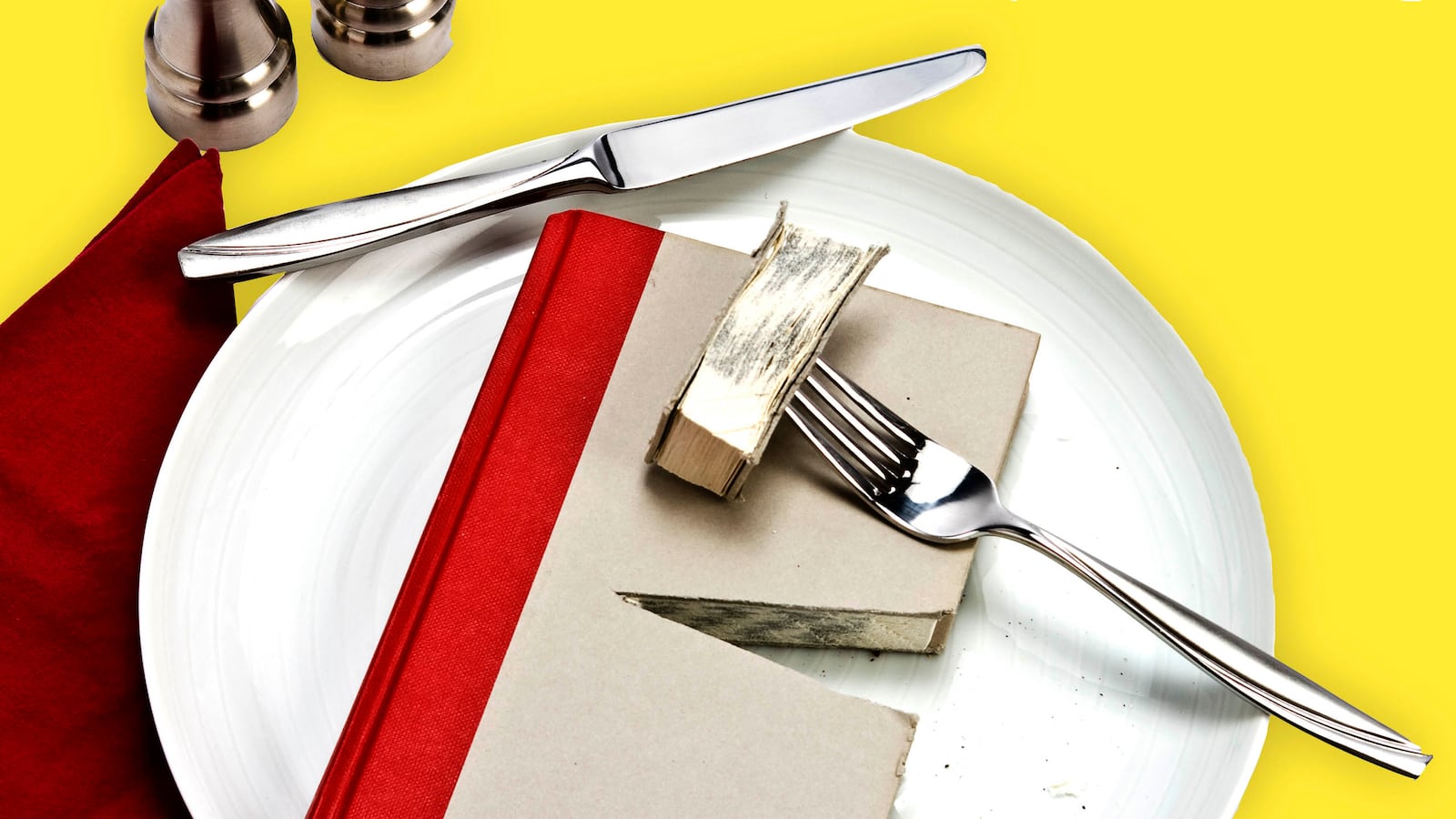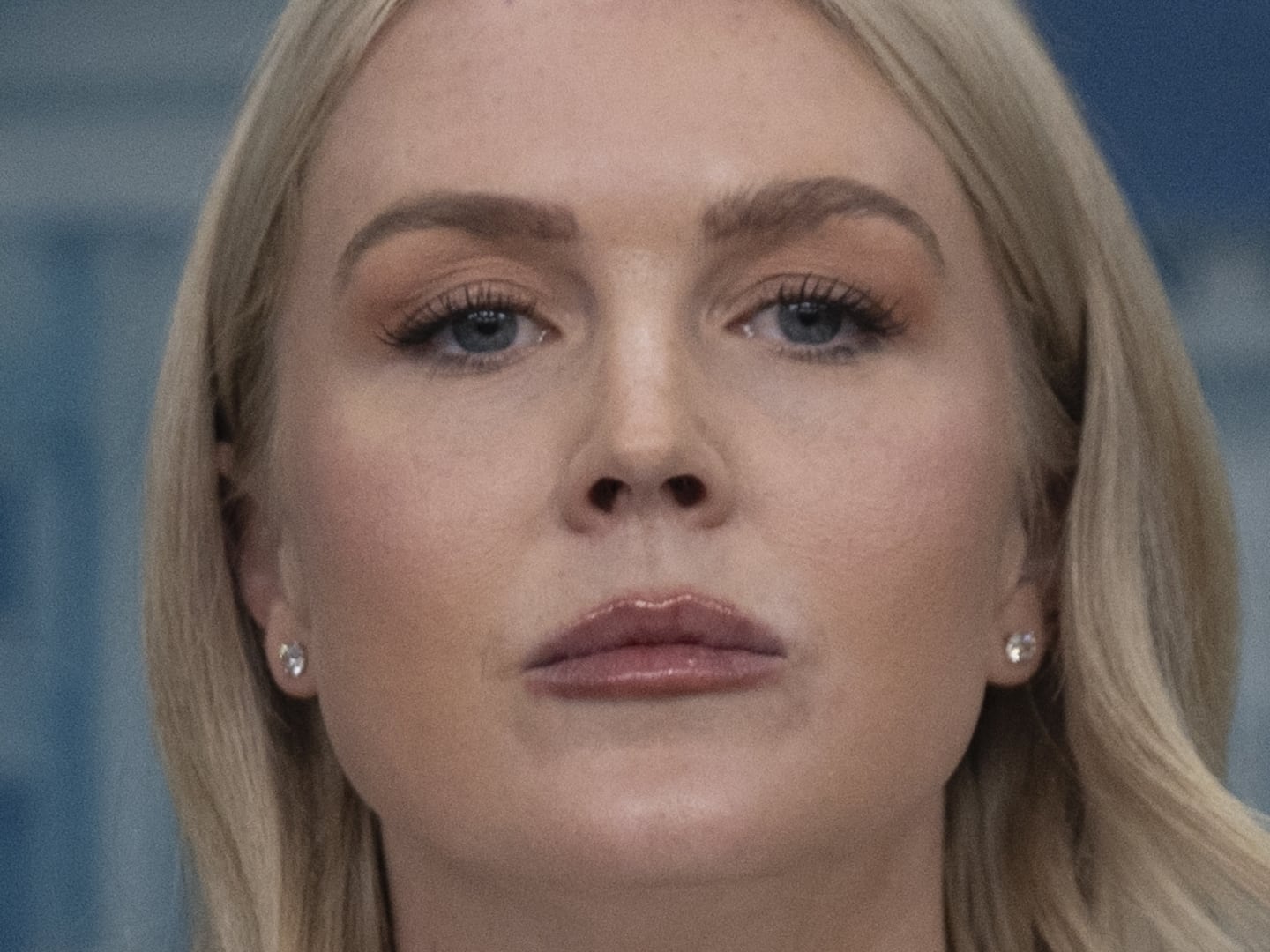I really didn’t have time to run out to my favorite small independent bookstore before the holidays, so I figured I would just log on to Amazon and see what they recommended for me: Phonics for Kindergarten, Home Workbook; Buffalo Bill and The Pony Express, I Can Read Level 3; and Lewis and Clark: A Prairie Dog for the President, also I Can Read Level 3.
Although my phonics probably could use some brushing up, fatherhood has clearly kept the algorithm from being much use for me. If only I could score an invite then to a Hamptons dinner party put on with an assist from Taylor Rose Berry, the 30-year-old proprietor of Harbor Books in Sag Harbor, New York, a tony town nestled in the Hamptons.
That’s because for the last several years that Berry has owned the shop, she has instituted a program whereby dinner party hosts, looking for a goodie bag gift beyond a box of chocolates, send her the names of their guests, alongside some other information—their bio, their interests, their reading habits, and the like.
Berry then selects a book for the host to give to each guest as a gift, something of a Cyrano in other words for Hamptons hosts who fret that their literary reach exceeds their grasp.
“Dinner party hosts don’t just want to give away wine or soap. They want a conversation piece that everybody will appreciate,” Berry said. “We’ve done Christmas parties, birthday parties, weddings, and I like to think that every time they look at the book they will remember the night.”
The idea, as most good ones do, came in fact at a dinner party after several bottles of wine. Berry had been used to people coming to the store, saying a little about themselves, and her offering up for them a book suggestion. Many came back looking for books for friends too, and she gathered what details they knew about the reading habits of their friends. A party centered around the giving of books was the obvious next step.
Leonard Ackerman, an East Hampton lawyer for such stars as Martha Stewart and Calvin Klein, is known around the area for his dinner parties, and a few years ago he started asking Berry to do the gift book buying.
“She has an incredible ability to find someone the right book without meeting the recipient,” he said. “I tell her I am looking for a book for a male, or a female, or a gay person, and then I tell her about the things they are interested in: gardening, or politics, and they have read everything on the subject, and she always finds something new. It’s like having your own personal editor of the book review.”
Emma Rhodes, another customer, has had Berry book-cater two of her and her husband’s dinner parties, and is planning for a third go-round in the new year. It makes for longer party preparations—she meets with Berry for 30-45 minutes, going over capsule biographies of each guest. There is less pressure this way, Rhodes says, than giving someone one of your own favorite books. They are set out, wrapped, as place-settings.
“It’s a conversation starter if you are sitting next to someone you don’t know. You can talk about books, talk about why you think that book was chosen for you or books you love instead of having an awkward moment.”
Getting customers to walk out with a dozen or so books at a time—Rhodes is ordering up 28 for her party in January—is no small feat in an industry that has been battered by first the rise and then the fall of big box bookstores, superstores like Walmart getting into bookselling, and of course that great behemoth, Amazon, with its literally infinite selection and ability to micro-target through browser histories.
“The innovative and creative ways independent booksellers sell books know no bounds,” said Oren Teicher, CEO of the American Booksellers Association. “The way indie bookstores are not just surviving but thriving in this current business environment is that they are innovative and creative and create an experience you can’t replicate online. In our business, the book, the product you are selling, is identical to one you can get anywhere. You don’t get a better ending if you buy from us. So it is all about the experience and the extraordinary knowledge and passion that indie booksellers have about books.”
Curating dinner party gifts, Teicher said, is of a piece with the way indie bookstores all over the country are experimenting with getting people through their doors. He cited one shop of foreign language titles that hosts language classes; another that hosts a summer camp for kids; another that organizes trips abroad based on literary themes.
“Algorithms work, but they are not perfect,” he said. “There are literally thousands of new titles being published every year, and indie booksellers are able to curate the books they put on the shelf. You can’t put every book on the shelf.”
Berry says that at the end of the day, an algorithm can’t account for human nature and the idiosyncratic personalities of book buyers. She told the story of one long time customer who left for a trip to California soon after her husband died. Without Harbor Books, she picked something that Amazon picked out for her, not realizing that it was novel about a woman whose husband had just died.
“She called me and said, ‘I am never going to cheat on you again!’” Berry said. “We win some and we lose some, but as an independent bookseller, we have to be trying new things that will make real paper books exciting.”
And so suppose I were heading out to the Hamptons for a dinner party, someone in late-late youth, with two kids to look after, too much to read, and not enough time to read it, but who loves nothing better than a good book.
Berry suggested Lincoln in the Bardo, by George Saunders, and the latest by National Book Award winner James McBride. Both of which I plan to start once I finish this phonics workbook that I got in the mail.






